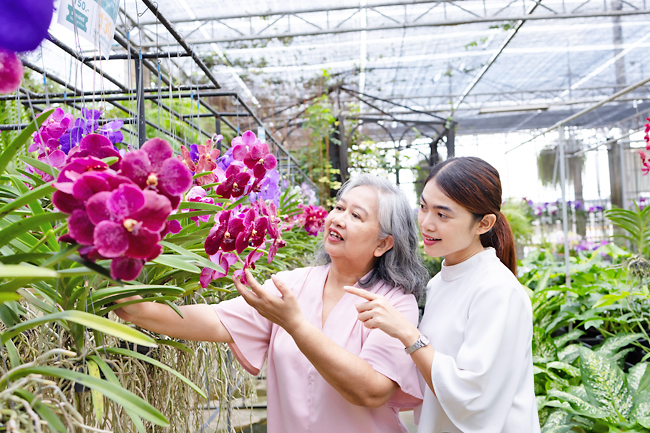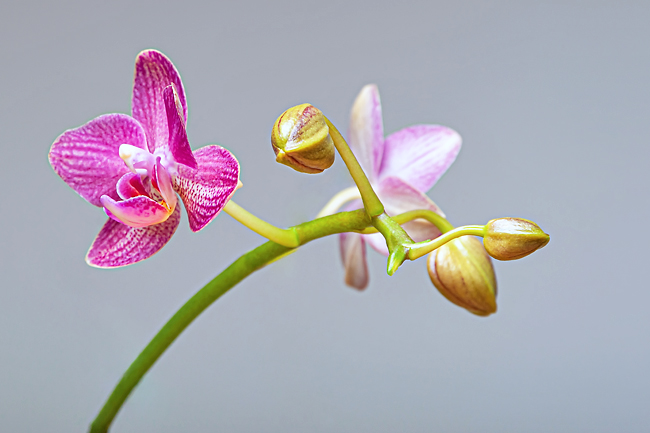ANN/THE STAR – What are essential tips for nurturing healthy orchids in a tropical climate? This was the question written to StarLifestyle’s correspondent Dr Christopher Teh, a soil and water conservation expert in Malaysia.
Orchids generally prefer bright, indirect light. If there is not enough natural light, you can use fluorescent lights placed 15-30 centimetres (cm) above the orchids for a period of 12 hours a day.
Growing orchids requires proper watering, which is a critical aspect. Unfortunately, new orchid growers often commit overwatering errors. To water your orchids, ensure the potting medium is almost dry before the next watering session, and water with washed rice water.
High humidity levels in Malaysia benefit orchids; however, if they are placed indoors in air-conditioned rooms, the humidity around the plant can be maintained by standing the pot on a tray with pebbles and water. Additionally, some orchid enthusiasts recommend morning misting to increase the humidity.
To promote orchid growth, it is necessary to provide nutrients, and a balanced, water-soluble fertiliser is usually recommended once every two to four weeks. Additionally, washed rice water can be used as a supplementary nutrient source, as mentioned previously.
Air circulation is vital for preventing fungal and bacterial diseases. Small oscillating fans can provide good air circulation but ensure that the air does not blow directly on the orchids.
When it comes to the potting medium, a well-draining one like orchid bark or sphagnum moss is ideal. Orchids typically need to be repotted every one to two years, when the potting medium begins to deteriorate.
Alternatively, charcoal can serve as a good planting medium for orchids.
Pest control is crucial for the maintenance of healthy orchids. Regular inspections can help identify common pests such as aphids, spider mites, and mealybugs.
Insecticidal soap or neem oil can be used as a preventive measure, and new plants should be isolated for a few weeks to ensure that they do not carry any pests or diseases. Finally, wilted flowers should be discarded to minimise the risk of disease. – Dr Christopher Teh





















































